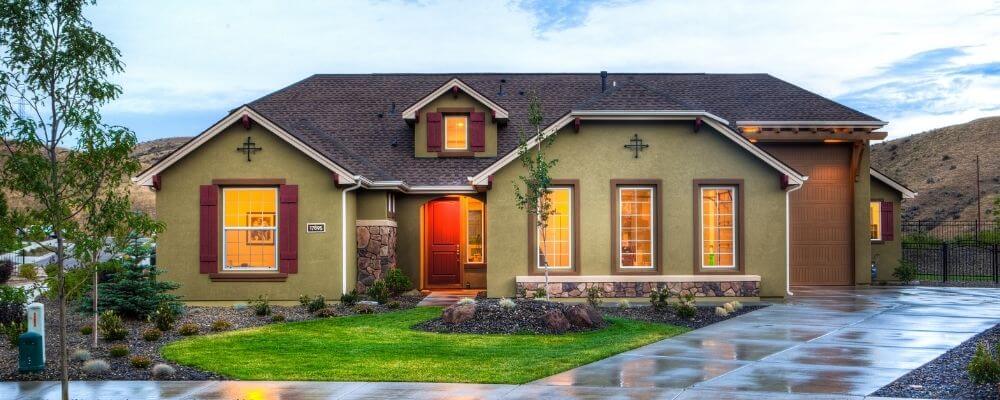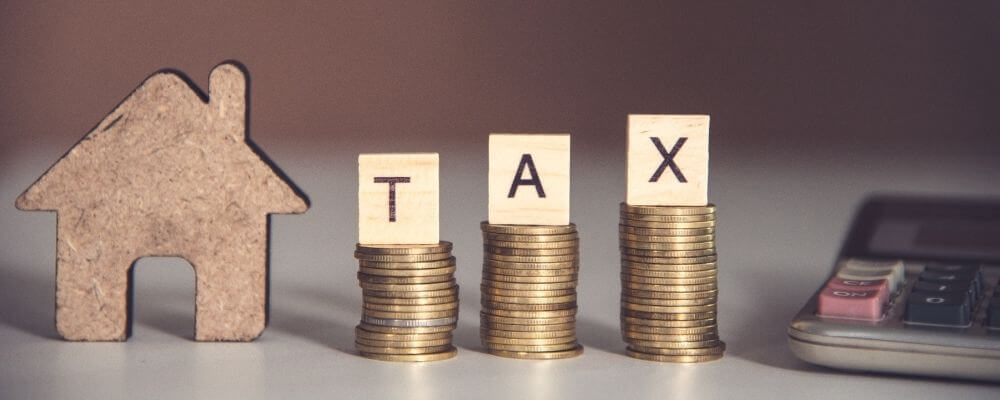Rental income can be a nice passive income to add to your salary. Whether you own one or several rental properties, you may be eligible for a rental property tax deduction, which is great if you’re in a high tax bracket.
Before you take rental property tax deductions, understand how they work, who’s eligible, and what expenses you can’t deduct.
Key Points
What Is Rental Property Tax Deduction?
If you own property that you rent out for at least 15 days a year, you may be eligible to write off the expenses you incur owning the property. The property tax deduction can offset the rental income you must claim on your tax returns each year.
Most taxpayers use the cash basis when reporting their rental income, which means they report the rent as they receive it. If you use this method, you can also report any expenses you incur to maintain or run the rental property.
There may be more deductions than you realize when you own rental properties. Read on to learn how you can save on your taxes as a landlord.
Tax Deductions for Rental Properties

There are a number of rental property tax deductions that you automatically qualify for, provided it’s an expense you incur to maintain and run the property. The expenses must be reasonable and customary for the area and fall within one of the following categories.
1. Mortgage Interest
If you have a mortgage on the property, you can deduct the interest you paid for the year on your tax return. The Tax Cuts and Jobs Act limits the interest deduction to landlords who make less than $25 million in rental income, but most landlords fall into this category. You can only write off the interest you paid that year, so if you miss a mortgage payment or get a special agreement if you fall behind, you can only deduct the interest you actually pay.
2. Repairs and Maintenance
Any expenses you incur maintaining or repairing the property are tax-deductible too. The repairs/maintenance must be reasonable and ordinary for the area and considered ‘necessary.’ For example, changing paint color in a house just to change it isn’t necessary, but fixing a leak or replacing a broken hot water heater is necessary. You can deduct the cost of the materials and labor as long as they aren’t excessive for what’s normal for the area.
3. Depreciation
You can deduct a prorated amount of the home’s purchase price each year. Most homes are depreciated over 27.5 years, allowing you to take a small deduction each year to offset your rental income.
For example, if you buy a home for $300,000 and the land is worth $100,000, you can depreciate $200,000 of the home’s purchase price over 27.5 years. This means you can deduct $7,272 per year for depreciation. You cannot, however, depreciate the land.
4. Property Taxes
Just like the property taxes on your primary residence, you can deduct the cost of the property taxes on your rental property as long as you pay them that year.
5. Annual Insurance Premiums
As the landlord, you must carry landlord insurance, but you can deduct the premiums you pay each year on your tax returns.
6. Property Management Costs
If you rent out a property but hire a property management company to handle the day-to-day activities of the property, you can write off the cost to use them.
7. Utility Costs
If you don’t pass the utility costs on to your tenants, you can deduct the actual cost on your tax returns. If your tenant covers any portion of the utilities, though, you can’t deduct them.
8. Administrative Costs of Managing the Property
If you incur costs to have office space in your home (or outside of it), travel to and from the property, or any other administrative costs, you can deduct them on your tax returns as they are a cost of doing business.
Summarized List of Rental Property Tax Deductions
- 1. Mortgage Interest
- 2. Home Repairs and Maintenance
- 3. Depreciation
- 4. Property Taxes
- 5. Annual Insurance Premiums
- 6. Property Management Costs
- 7. Utility Costs
- 8. Cost to Manage the Property
What Expenses Aren’t Tax Deductible On Rental Property

There are certain expenses you can’t deduct on your tax returns when you’re a landlord. They include:
1. Costs to Improve a Property
There’s a difference between improving and fixing a property. If you add a room, replace the roof, or finish the basement, those are improvements. You can take a prorated depreciation write-off, but you can’t deduct the expenses directly.
2. Loss of Rent (Vacancy Rate)
If you have vacancies or your tenant doesn’t pay, you can’t deduct the cost of the rent you lost. It’s a risk of doing business and isn’t a deductible expense on your tax returns.
3. Mortgage Points
If you paid points (origination or discount) when you took out the mortgage to buy the rental property, you cannot deduct the cost of those mortgage points on your tax returns.
How to Calculate Rental Income Tax
Total Taxable Income = Gross Rental Income – All Tax Deductible Expenses
To calculate your rental income tax, you must know your taxable rental income. Use these steps:
- Add all rental income, including rent, received, advanced rent payments received, security deposits you kept, any expense the tenant paid you
- Total up all allowed expenses paid
- Figure out if you have any depreciation expenses from improvements made to the property
- Subtract your total allowed expenses and depreciation expenses from your gross rental income
This gives you your taxable rental income or the income you’ll claim on your taxes and that the IRS will include in your tax liabilities.
Rental Income Tax Example
You bought a single-family home for $250,000. The land is worth $50,000 and the home is worth $200,000. You can take $5,500 in depreciation per year and you collect $1,500 a month in rent or $18,000 per year.
You also incur these expenses:
- Mortgage interest: $8,000
- Real estate taxes: $5,000
- Insurance: $1,000
- Property management: $2,000
- Repair expenses: $1,000
Your expenses total $17,000. This makes your taxable income ($18,000 – $5,500 – $17,0000) = -$4,500. You would take a loss because of the expenses and depreciation you could write off.
What are the Tax Rates on Rental Income?
Rental income is taxed just like your ordinary income. In other words, it’s taxed at your normal tax bracket. This means your rental income could push you into the next tax bracket. This is why it’s important to take as many of the tax deductions as you can when you own rental property.
Final Thoughts
Don’t miss out on your chance to reduce your tax liability when you have rental properties. As long as you rent the properties out and have expenses, you can deduct them on your tax return. This lowers your tax liability and increases your profits when owning an investment property.
If you still aren’t certain, talk with your tax advisor about what you can deduct with your rental property. Many people overlook the deduction of expenses incurred to travel to and from the rental property from their home office. Set up a home office and you can write off the mileage traveling to the property, giving you an even larger deduction!



